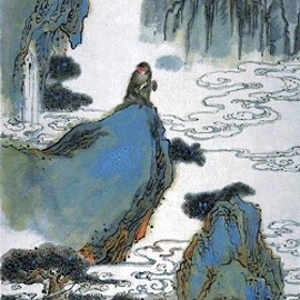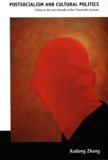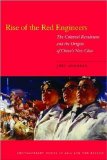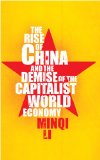“Freeters’ Revolt” (素人之乱) - Japanese film & discussion at Utopia & Desirée
Tomorrow (Sunday, November 1), from 18:30 to 20:00, Utopia (the broad-left bookstore/ “salon” in Beijing) will host a screening of the Japanese documentary film “Freeters’ Revolt” (《素人之乱》, translated elsewhere as “Amateur’s Revolt”), and a discussion with the filmmaker, freeter activist and second-hand shop owner Hajime Matsumoto (松本 哉), along with Higuchi Takuro (樋口拓朗), billed as the main organizer of the 2008 anti-G8 protests in Japan and researcher at Tokyo University’s Global COE [Centers of Excellence] Program. See the Chinese announcement here. For directions, call Utopia at (010) 6276.0856+11/0.
On Wednesday, November 4, a second screening + discussion will be held at the Desirée Autonomous Youth Lab in Wuhan. See the Chinese announcement for that here.
The film is in Japanese with Chinese subtitles. The two Japanese guests will speak Japanese with a Chinese interpreter.
“Freeter” (Japanese フリーター, furita), possibly derived from the German freie Arbeiter (free workers), is similar to the European concept “precariat” and should be understood as part of the global neoliberal trend of the precarization (or in the US, casualization) of labor. A difference is the freeter refers specifically to young people (according Wikipedia, between the ages of 15 and 34 - not sure where they go this), and they don’t have to be employed at all, although generally they move among temporary and part-time jobs and so should be understood as a particular form of what Marx called the “industrial reserve army.” For analysis of freeter culture in relation to Japan’s neoliberalization, see the writings of anthropologist Andrea Arai, such as The Neo-Liberal Subject of Lack and Potential: Developing “the Frontier Within” and Creating a Reserve Army of Labor in 21st Century Japan (online for free).
Actually the term in this film isn’t furita but shiroto (素人), which in some contexts means “amateur,” but here means basically the same as freeter. Technically I think shiroto is a kind of freeter, or an employment position that freeters tend to hold - just as the precariat in Europe and North America tends to hold “temp” positions and migrants from rural areas in China tend to hold non-contract or short-contract jobs through “labor dispatch” agencies. I’m told that “shiroto” refers to a temporary position that Japanese firms have been relying on increasingly since the crisis of 1997 to cut costs, just as companies in Europe and North America have been relying increasingly on temp workers, and in China on migrants hired through labor dispatch agencies. In this film, however, the term seems to refer to freeters in general.
The film title suggests a larger-scale ideal, but it refers specifically to a phenomenon on a commercial street in Tokyo (北中路商店街), where freeters have been “turning the street into [their] own amusement park” by setting up shops and bars there. Sort of a reverse gentrification, it sounds like. I don’t understood how they can afford to do this, but I know at least some businesses take turns renting the same spaces, and I guess the large number of people involved makes it easier to pool resources. Other aspects of the “revolt” mentioned in the description are the elaboration of freeter subculture via net radio and artistic activities, and involvement in various forms of pro-poor and anti-capitalist activism, such as the anti-G8 protests and activities in support of poor university students.
Before opening his second-hand furniture-&-appliance store, filmmaker Hajime Matsumoto helped to organize a Poor Students’ Union starting at Hosei University, which created colorful forms of resistance to rising university costs and campus gentrification though antics such as setting up make-shift kitchens outside the offices of university authorities, known as “banquet demonstrations” (宴会示威法).
These screenings and the visit of these Japanese guests were arranged by a Chinese musician and student of journalism named Tang Shui’en, who recently visited Japan to learn about independent media and the freeter subculture there. He wrote an essay about his own “alternative basic education” through participation in China’s underground music scene and his effort to set up an “autonomous youth center” in Wuhan. This is being translated into English and may eventually be posted here.

 "Revolutionaries are
"Revolutionaries are 



Leave your response!